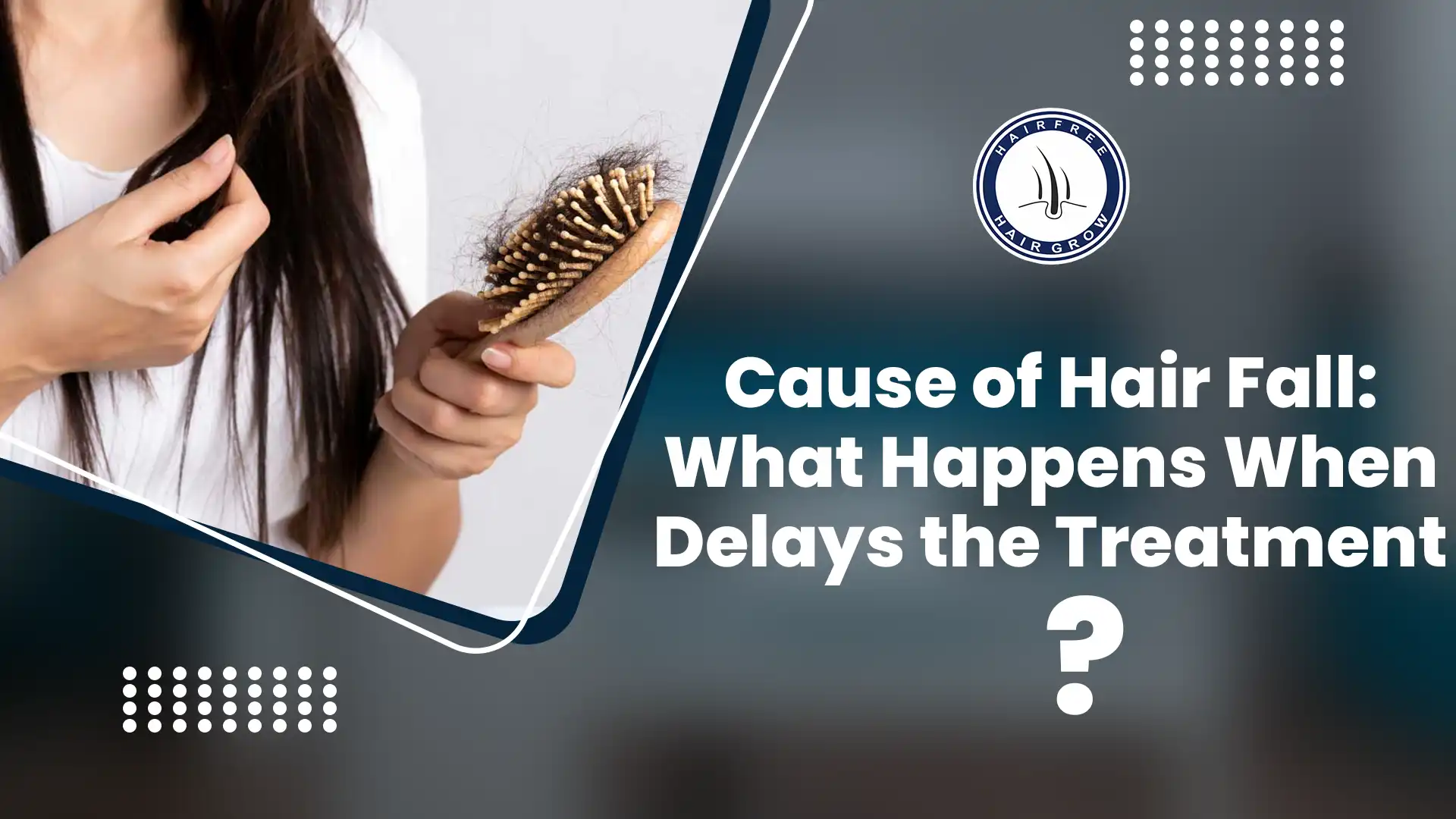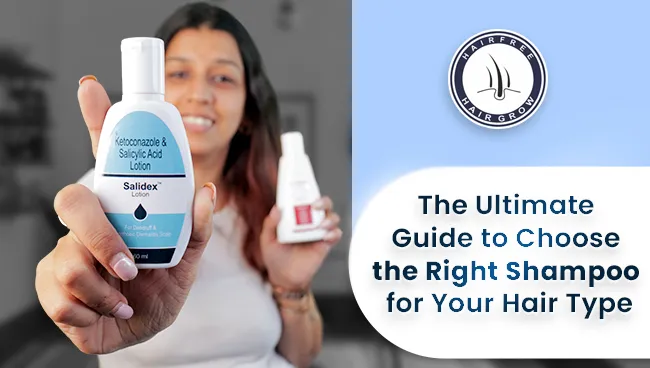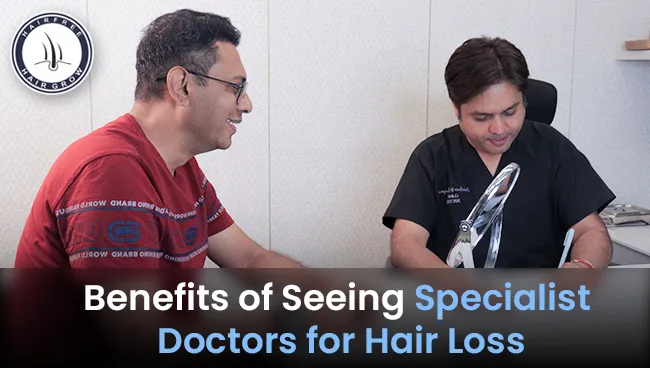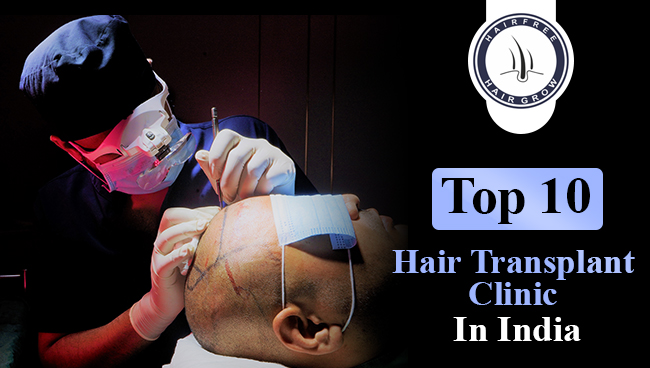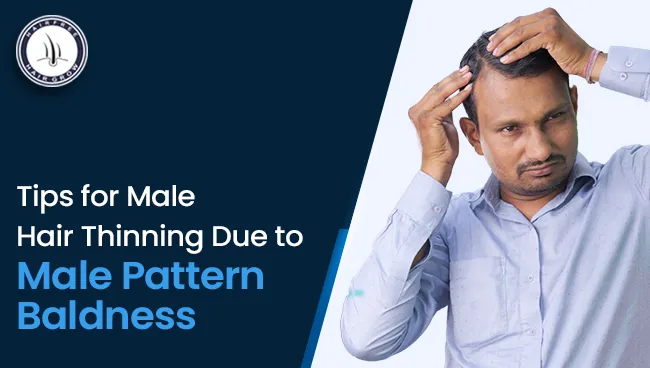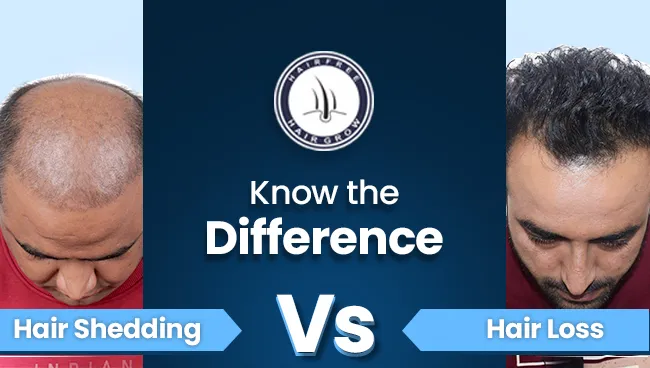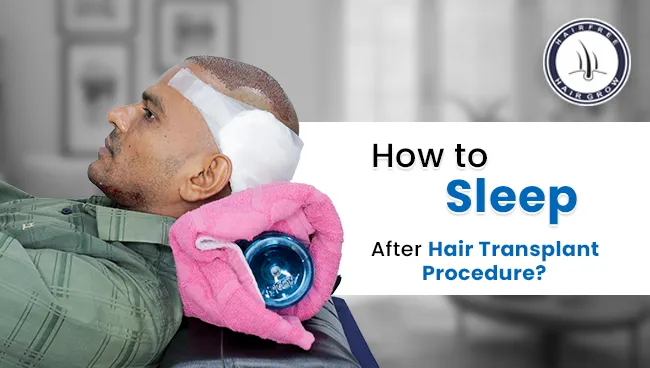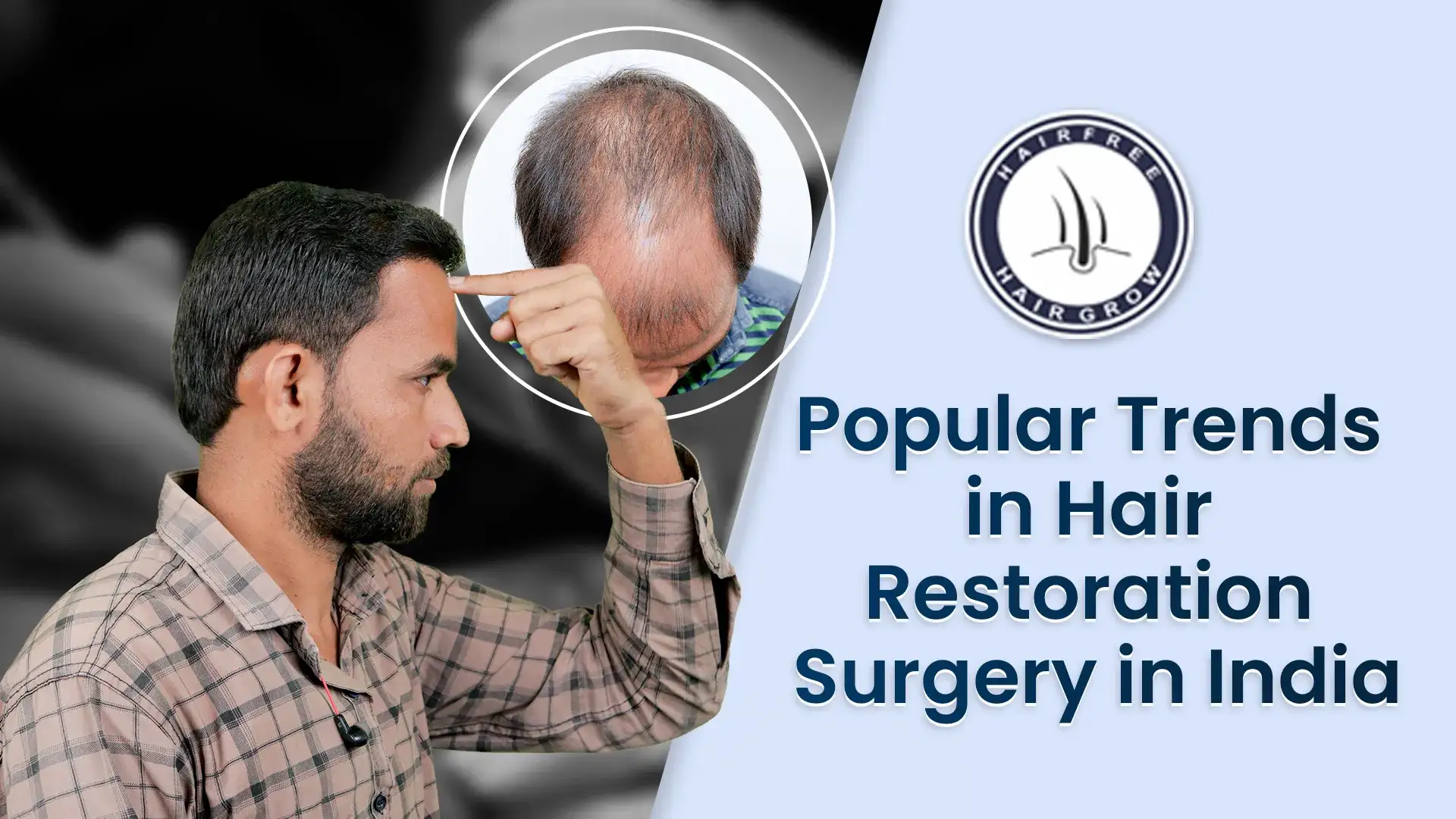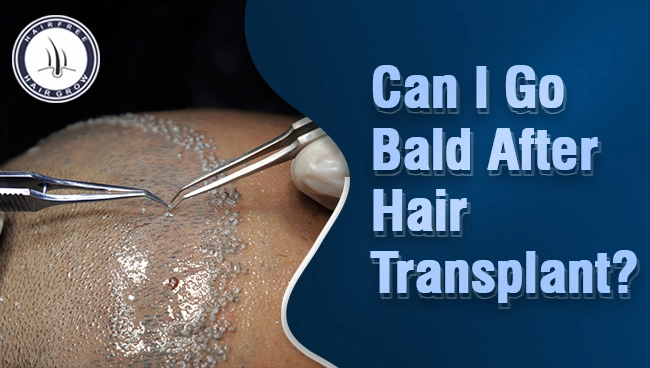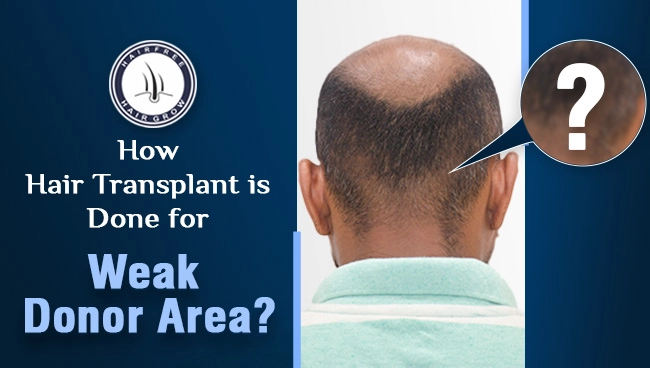We often say that delay is okay, except in a job or in serious cases. Delaying has slowly crept into us because we have been told to take it easy and relax, but going against this grain and doing things right now is what can make you perfect and beautiful. Just take the case of hair, you notice some hair fall or dandruff, you panic and talk to the people close or near you. Understanding the causes of hair fall can help prevent further hair loss and improve hair health.
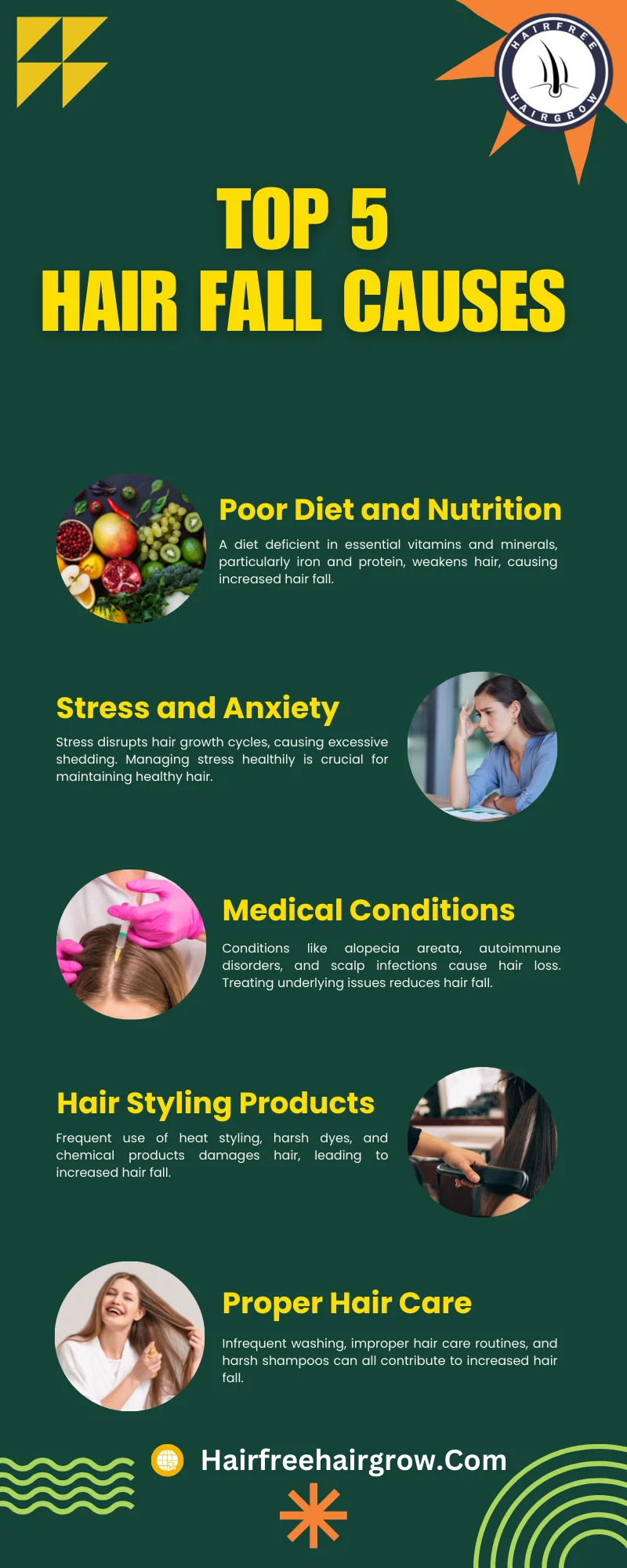
What they say can be recorded in these stock replies:
1. Hair Fall is natural, you lose hair every day and they regrow.
2. Don’t panic you are just overthinking, it!
3. Oh, it isn’t a lot you are just imagining it. Doctors will just give you expensive medicine for it.
4. Just use this (or that) oil or shampoo. This will solve everything and you will see results soon.
All of these replies cause you to delay visiting a Trichologist and a Dermatologist for the issue.
Understanding Hair Fall
Hair fall is when you start losing more hair than usual from your head. It’s totally normal to lose some hair every day because new hair grows to replace the old ones. But when you’re losing a lot of hair and it’s not growing back as fast, that’s when it becomes a concern.
There are many reasons for hair fall. Sometimes, it’s just a part of the natural hair growth cycle. Other times, it can be caused by things like stress, poor diet, not taking care of your hair, or even some medical conditions.
Taking good care of your hair, eating a healthy diet with plenty of vitamins and minerals, and managing stress can help reduce hair fall. If you’re really worried about it, it’s a good idea to see a doctor or a dermatologist (a skin and hair specialist) to figure out what might be causing it and how to treat it.
Common Causes of Hair Fall
Genetics (Heredity)
One of the primary reasons for hair fall is genetics. If your family has a history of hair loss, you are more likely to experience it too.
Hormonal Changes
Changes in hormones due to pregnancy, menopause, or thyroid issues can lead to hair loss. Hormonal imbalances can affect hair growth cycles.
Poor Diet and Nutrition
A diet lacking essential vitamins and minerals, especially iron and protein, can weaken your hair, making it more prone to fall.
Stress and Anxiety
Stress can disrupt the hair growth cycle and cause hair to shed more than usual. Finding healthy ways to manage stress is important for maintaining healthy hair.
Lifestyle Choices
Excessive smoking, alcohol consumption, and lack of physical activity can negatively impact hair health and contribute to hair fall.
Medical Conditions
Certain medical conditions like alopecia areata, autoimmune disorders, and scalp infections can lead to hair loss. Treating the underlying condition may help reduce hair fall.
Overuse of Hair Styling Products
Excessive use of heat styling tools, harsh hair dyes, and chemical-laden hair products can damage the hair and lead to hair fall.
Tight Hairstyles and Hair Accessories
Pulling your hair tightly in hairstyles like ponytails or using tight hair accessories can cause stress on the hair follicles and result in hair fall.
Ageing
As we age, the rate of hair growth slows down, and the hair becomes thinner and more susceptible to falling out.
Lack of Proper Hair Care
Not washing your hair regularly, improper hair care routines, and using harsh shampoos can contribute to hair fall.
The Consequences of Delay
if you are thinking of delaying this can happen in various types of Hair loss cases:
1. In the case of Alopecia Areata where hair loss is sudden and in patches, the delay can cause Alopecia Totalis where the hair is completely lost from an area or Alopecia Universalis where hair from the entire body sheds in a small time. Both these advanced form of hair loss is nearly impossible to reverse.
2. Cicatricial Alopecia where there is scarring of the scalp and the hair loss happens due to inflammation of hair follicles and causes them to convert into scars, in this case, the delay can cause the system to attack more hair follicles resulting in a gradual increase in hair fall.
3. Telogen Effluvium is a type of hair fall which happens in Hair which is in the resting (Telogen) phase. Usually, about 15 to 20% of hair is in the resting phase and if it increases due to shock or fever the resulting hair loss can be for a short time. But if it is allowed to stay without visiting a doctor it can become chronic and lead to longer effects.
Similarly in other cases also hair loss of different varieties if isn’t diagnosed early and precisely it can lead to various issues. Thus delaying is not okay and shouldn’t be done in any case, especially not in the case of hair.
Steps to Address Hair Fall
There are effective steps you can take to address this issue and promote healthy hair growth.
1. Maintain a Nutrient-Rich Diet
A balanced diet rich in essential nutrients like vitamins, minerals, and proteins is crucial for hair health. Incorporate foods like leafy greens, nuts, eggs, and fish into your daily meals to provide your hair with the nourishment it needs to stay strong and vibrant.
2. Regular Scalp Massages
Massaging your scalp increases blood circulation to the hair follicles, promoting hair growth. Use natural oils like coconut or almond oil and gently massage your scalp for a few minutes. This simple routine can significantly reduce hair fall and improve the overall health of your hair.
3. Choose the Right Hair Care Products
Opt for hair care products that are gentle and free from harsh chemicals. Look for shampoos and conditioners that suit your hair type and address specific hair concerns, such as hair fall or dandruff. Avoid excessive use of styling products that can damage your hair.
4. Stay Hydrated
Proper hydration is not only essential for your overall health but also for your hair. Drinking enough water keeps your hair and scalp moisturized, preventing dryness and breakage. Aim for at least 8-10 glasses of water per day to maintain optimal hydration levels.
5. Regular Exercise and Stress Management
Engage in regular physical activity to reduce stress levels and improve blood circulation. High-stress levels can contribute to hair fall, so incorporating activities like yoga, meditation, or even a simple daily walk can have a positive impact on your hair health.
6. Get Adequate Sleep
Quality sleep is crucial for your body to repair and rejuvenate, including your hair. Aim for 7-9 hours of uninterrupted sleep each night to ensure your body has sufficient time to heal and promote hair growth.
7. Contact Haircare Professional
If its natural hair falls, the doctor’s suggestion will calm you more than your friend’s or family’s reply, because it comes from a medical professional. If the hair fall in any way is a sign to an underlying condition then the doctor can start the treatment faster and the faster you catch the cause of hair fall, the lesser the damage.
Hair Fall can call into notice serious issues like autoimmune conditions in the case of Cicatricial Alopecia, psychological issues in the case of Trichotillomania.
Thus getting an opinion early is the best way to go. And it is very important to get a scalp examination half-yearly as we do for other parts of our body. This keeps one’s medical file updated and any hair issue can be pinpointed to a cause relatively easily.
Conclusion
Your hair asks care and we at HairFree & HairGrow provide it. Whatever your doubt we will resolve it. Our doctors diagnose the issues easily and perfectly and have a success of above 98% in Hair Transplant cases. So when you choose HFHG you choose more hair with longer life and better grade.
Our centers, located in Pune, Surat, Kolkata, Ahmedabad, Mumbai, Bhopal, Hyderabad & Gurugram You are Care Free while your hair grows and waves Freely!
Written By
MBBS, DVD (Skin & VD)
Dr. Ankit Jain is an expert in identifying the causes of hair fall and understanding what can lead to delays. With his extensive experience, Dr. Jain offers valuable insights and effective solutions to help patients achieve healthier hair.
Disclaimer
We’ve made all possible efforts to ensure that the information provided here is accurate, up-to-date and complete, however, it should not be treated as a substitute for professional medical advice, diagnosis or treatment. See Detailed Disclaimers Here.

